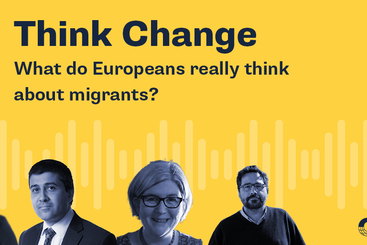This briefing presents an overview of the key features of migration and asylum policy in Spain, recent trends in migration patterns, public perceptions and political narratives on refugees and other migrants:
- Spain is known for its generally tolerant attitudes towards immigration. Concerns appear highest around immigration’s impact on the employment prospects of local people, though these concerns appear to be declining. There are also comparatively low levels of concern around immigration in relation to crime or terrorism.
- Traditionally the salience of immigration in Spain has been low, peaking only around certain key events, such as the ‘crisis of the dinghies’ in the Canary Islands in 2006. Over the last decade, according to national survey data, the salience of immigration has rarely exceeded 10%.
- As in many European countries, attitudes towards the overall impact of immigration have generally become more positive. A survey in 2018 shows that 47% of the Spanish public report that immigration makes Spain a better place to live, a significant increase from the 28% recorded in 2002.
- The Spanish population also has very welcoming and supportive attitudes towards refugees. The country stands out consistently on this aspect in international surveys, with high levels of sympathy expressed with refugees. People in Spain are far less suspicious of refugees than their counterparts in other European countries and are also much more likely to believe refugees are genuine.
- Historically, political parties have not taken strong positions against immigration and popular narratives are often positive and welcoming. However, this is changing given the rise of the extreme right-wing Vox party, now the third largest in parliament. Vox’s political platform is strongly nationalist, and the party has advanced xenophobic and anti-immigrant narratives.
This briefing is part of a wider project supported by the IKEA Foundation aimed at supporting public and private investors interested in engaging with migration and displacement.
About the series
Through a series of activities, dialogues and innovative communication and outreach initiatives, Public and political narratives on refugees and other migrants: implications for action maps recent research and evidence on public attitudes toward refugees and other migrants.
Hearts and minds: how Europeans think and feel about immigration

Explore our data visualisation: Hearts and minds: how Europeans think and feel about immigration which builds on this ongoing research, supported by the IKEA Foundation, analysing public and political narratives and attitudes towards refugees and other migrants in Europe.
Related listening
This podcast dissects attitudes and approaches to immigration across Europe, highlighting how political narratives are often at odds with public opinion.




